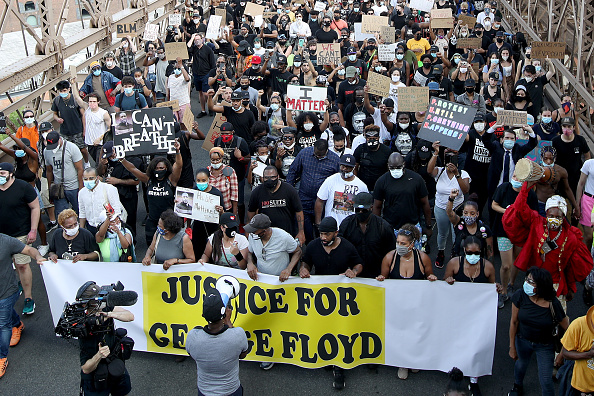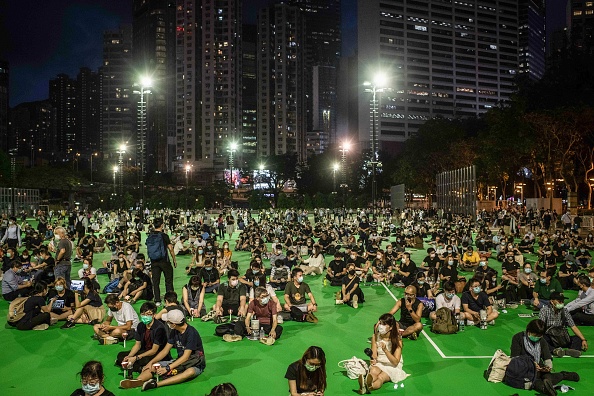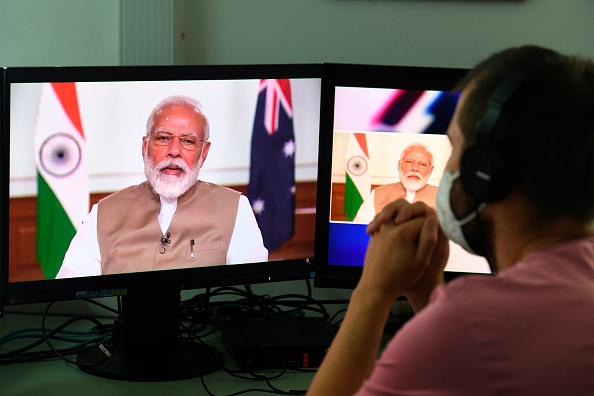
 Confluence of Crises
Confluence of CrisesBilateral tensions deteriorated further this week, as U.S. backlash continues to mount over Beijing's attempt to push through a Hong Kong national security law. Following President Trump's threat of sanctions, the U.S. Senate Banking Committee held a hearing discussing punitive measures against China. The Chinese Communist Party "must know that there are consequences to its actions," said Republican Senator Pat Toomey. "Otherwise, the lesson that they will conclude is that they can continue the aggression against Hong Kong and perhaps in other places around the world." In response, a commentary featured in the People's Daily called Trump's actions "political posturing" and "incomprehensible", while Foreign Ministry Spokesperson Zhao Lijian said that U.S. action to "obstruct China's development and growth is doomed to fail."
Meanwhile, the Trump administration decided to bar Chinese passenger airplanes from flying to the U.S. in a bid to "pressure Beijing to let U.S. air carriers resume flights." In response, China eased its restrictions on foreign travel, incurring criticism on Chinese social media about whether Beijing was conceding to Washington.
Senate legislation was also introduced this week to prevent China and other "malign state actors" from stealing U.S.-funded research at American universities, reflecting U.S. concern over Beijing's alleged attempts to tap U.S. universities to increase China's military and technological competitiveness. The bill would also expand the State Department's ability to deny visas to foreign students and researchers. China routinely denies any allegations over intellectual property theft, saying that the U.S. is using the issue as a political tool. For more, read "We All Lose in the U.S.-China Visa Wars" by Doug Bandow, Senior Fellow at the Cato Institute, on China-US Focus.
 Protest Hypocrisy
Protest HypocrisyChinese officials and state media have paid close attention to the anti-racism protests in the United States, and Chief Executive of Hong Kong Carrie Lam complained of "double standards". "The violent protests in the streets of urban America are further discrediting the U.S. in the eyes of ordinary Chinese," said Susan Shirk, former Deputy Assistant Secretary of State. China criticized American support for Hong Kong protestors, decrying U.S. hypocrisy for its police brutality after condemning excessive police force used during the Hong Kong protests.
While civil unrest continues in the U.S., tens of thousands of people defied a ban on large gatherings, meeting in Hong Kong's Victoria Park for the 31st anniversary of the Tiananmen Square Incident. With the exception of one instance, the gathering remained largely peaceful. COVID-19 social distancing measures were cited as the reason for the ban, marking the first time in over three decades that crowds have been denied a vigil.
 Indo-Pacific Problems
Indo-Pacific ProblemsIndia and Australia are both facing increasingly strained relations with China, as well as a rise in tensions in the South China Sea. This week, the two countries signed two bilateral military agreements, allowing each nation access to the other's military bases, and developing joint military exercise programs.
Prime Ministers Scott Morrison of Australia and Narendra Modi of India said that their countries "share a vision of a free, open, inclusive and rules-based Indo-Pacific region to support the freedom of navigation, over-flight and peaceful and cooperative use of the seas."
Both Indo-Pacific countries have had flare-ups with China in the last month: Australia came close to a potential trade war with China after its prime minister questioned China's role in the global coronavirus response, while China and India faced a border skirmish in the Himalayan region, leading to minor injuries to soldiers on both sides. At a press conference this week, Chinese Foreign Ministry Spokesperson Geng Shuang said that the current situation on the Himalayan border is "stable and controllable" and that both countries are maintaining "close communication through diplomatic and military channels."
Prepared by China-US Focus editorial teams in Hong Kong and New York, this weekly newsletter offers you snap shots of latest trends and developments emerging from China every week, while adding a dose of historical perspective.
- 2020-05-29 Questions of Autonomy
- 2020-05-22 Pandemic Decisions
- 2020-05-16 Fractures and Fault Lines
- 2020-05-09 Attacks and Counterattacks
- 2020-05-02 Retaliatory Actions
- 2020-04-24 Sinking Perceptions
- 2020-04-18 Pandemic World
- 2020-04-11 The Long Road Back to Normalcy
- 2020-04-03 Shifting Gears
- 2020-03-28 Cooperation or Confrontation
- 2020-03-20 World in Turmoil
- 2020-03-13 Global Emergency
- 2020-03-06 Global Strains
- 2020-02-28 Coronavirus Gone Global
- 2020-02-22 The Virus Continues
- 2020-02-15 Asserting Control
- 2020-02-08 A Novel Outbreak
- 2020-01-31 Global Health Emergency Declared
- 2020-01-24 Celebrations Grounded
- 2020-01-17 Signed, Sealed, Delivered
